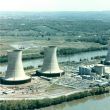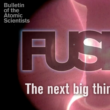Real threats, real solutions
By Sunday Jonah, June 14, 2012
The authors in this Roundtable have all argued, albeit in different ways, that significant changes should be made to the global nonproliferation regime in order to achieve the goals set out in the Nuclear Non-Proliferation Treaty (NPT). Changes seem necessary partly because the world in recent years has witnessed a broad diffusion of technology, which has allowed many nations, including developing countries, to harbor ambitions for nuclear power. That has led to the possibility of a global nuclear renaissance — and also to renewed concerns about nuclear proliferation.
But another reason that the nonproliferation regime seems in need of reworking is that, as I have argued, nuclear terrorism has emerged in recent years as a greater security threat. Naeem Ahmad Salik takes issue with my views, arguing in his third essay that the threat of nuclear terrorism is sometimes exaggerated for political reasons. Yet even if the threat is occasionally exaggerated, the fact remains that non-state actors have repeatedly made pronouncements about their ultimate intention to acquire nuclear weapons.
Salik argues that terrorists are unlikely to gain access to nuclear weapons because of "the technical difficulty of constructing a usable device.” But though it may be difficult for terrorist groups to construct a sophisticated nuclear weapon, it is certainly plausible that they could build a crude one. Nobel Prize-winning physicist Luis Alvarez once wrote that if terrorists possessed modern weapons-grade uranium, they "would have a good chance of setting off a high-yield explosion simply by dropping one half of the material onto the other half." It remains my view that the most difficult part of making a nuclear bomb is gaining access to fissile material; therefore, the key element in preventing nuclear terrorism is controlling access to such material. As Harvard security analyst Graham Allison has written, "As a fact of physics: no highly enriched uranium and plutonium, no fission nuclear explosion, no nuclear terrorism.”
However, constructing a nuclear device is not the only way to carry out nuclear terrorism. Terrorists might also attempt to sabotage safety systems at nuclear facilities in order to create a disaster of the same magnitude as that which occurred at the Fukushima Daiichi Nuclear Power Station. To highlight the threat of nuclear terrorism is not to engage in some political gimmick, as Salik suggests. To the contrary, nuclear terrorism is a legitimate threat that deserves the attention it is currently being accorded in a series of nuclear security summits.
Salik and Adel M. Ali have disagreed about whether or not India, Pakistan, and Israel should be allowed to join the NPT as nuclear weapon states. I will only mention that, as things stand now, it seems unlikely that these countries will join as non-nuclear weapon states. Among other obstacles, the US-India nuclear cooperation agreement that was concluded in 2008, and the waiver extended to India the same year by the Nuclear Suppliers Group, have provided India the benefits of nuclear cooperation, as promised under the NPT, without India's having acceded to the treaty. Such an arrangement provides treaty outliers little incentive to join the nonproliferation regime.
In conclusion, only a few states have developed a nuclear weapons capacity since the NPT came into force. Though the treaty is not the only reason for this, a greater number of states would surely have developed a nuclear capability in the treaty's absence. So that the NPT can continue making the world a safer place than it would otherwise be, I reiterate my support for expanding the role and powers of the International Atomic Energy Agency, and for ascribing to nuclear security the same importance that is attached to the treaty's existing pillars of nonproliferation, disarmament, and peaceful nuclear cooperation.
Topics: Nuclear Energy, Nuclear Weapons
Share: [addthis tool="addthis_inline_share_toolbox"]














